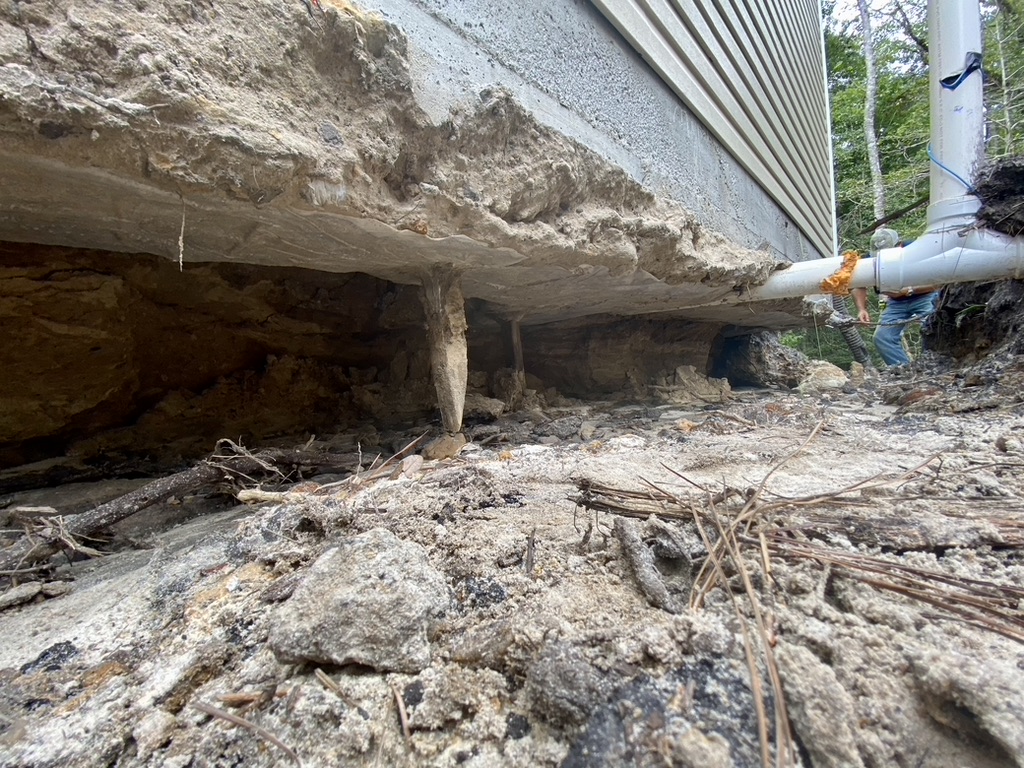
To safeguard your foundation from soil erosion, focus on proper grading to steer water away effectively. Make sure to install gutters and downspouts to manage runoff and prevent erosion around the foundation. Embrace mulch and ground cover to retain moisture, reduce runoff, and enhance soil health. Implementing retaining walls can fortify the foundation against erosion. Redirecting water away from the foundation with techniques like French drains can also be beneficial. Remember, protecting your foundation is crucial for your home’s longevity.
Key Takeaways
- Proper grading maintains a 5% slope to prevent soil erosion and protect the foundation.
- Install gutters and downspouts to manage water runoff and prevent erosion around the foundation.
- Use mulch and ground cover to retain moisture, reduce runoff, and enhance soil health.
- Implement retaining walls to strengthen the foundation against erosion and redirect water flow.
- Direct water away from the foundation by extending downspouts, grading soil, and using splash blocks.
Proper Grading
To prevent soil erosion, make sure your property is properly graded to direct water away from the foundation. Essential grading is vital in making sure that water flows away from your home rather than pooling around the foundation. When your property isn’t graded correctly, water can accumulate near the foundation, leading to soil erosion and potential damage to the structural integrity of your home.
Improper grading can cause water to seep into the foundation, weakening it over time. To address this issue, you should inspect the slope of your property and guarantee that it’s graded away from the foundation at a minimum slope of 5%. This means that for every 10 feet away from your home, the ground should slope down at least half a foot.
If you notice puddles forming near the foundation after rain or if you see signs of erosion such as exposed roots or bare soil, it’s essential to address the grading of your property promptly. You can use soil, gravel, or other materials to adjust the slope and redirect water flow away from the foundation. By maintaining proper grading, you can effectively protect your foundation from soil erosion and water damage.
Install Gutters and Downspouts
Consider installing gutters and downspouts to effectively manage water runoff and prevent soil erosion around your foundation. Gutters are essential in channeling rainwater away from your home, preventing it from pooling around the foundation and causing erosion. When rainwater isn’t properly directed away from the house, it can seep into the soil, increasing the moisture levels and putting pressure on the foundation walls. This can lead to cracks, leaks, and structural damage over time.
Downspouts play an important role in complementing gutters by carrying water from the roof to the ground level. Make sure your downspouts extend at least 5 feet away from the foundation to guarantee the water is deposited a safe distance from your home. If the downspouts release water too close to the foundation, it can still cause erosion and damage.
Regularly inspect your gutters and downspouts for debris such as leaves, twigs, or dirt that can clog them. Clogged gutters can lead to overflow, which defeats the purpose of having gutters in the first place. By keeping them clean and well-maintained, you can make certain that water is effectively diverted away from your foundation, protecting it from erosion and potential structural issues.
Use Mulch and Plant Ground Cover
Enhance your foundation’s protection against soil erosion by incorporating mulch and planting ground cover. This simple yet effective method can greatly reduce the impact of erosion on your property. Here are some key benefits and tips to keep in mind:
- Retains Moisture: Mulch helps retain moisture in the soil, preventing it from drying out and eroding easily.
- Reduces Runoff: Planting ground cover can absorb excess water and decrease runoff, minimizing the erosion caused by heavy rain.
- Prevents Soil Compaction: Mulch acts as a protective layer, preventing soil compaction due to foot traffic or heavy machinery, which can lead to erosion.
- Enhances Soil Health: Ground cover plants can improve soil health by adding organic matter and nutrients as they decompose.
- Aesthetic Appeal: In addition to erosion control, mulch and ground cover plants can enhance the overall look of your landscape.
Implement Retaining Walls
To strengthen your foundation against soil erosion, consider implementing retaining walls as a strategic measure. Retaining walls are structures designed to hold back soil on an incline, preventing erosion and providing stability to your foundation. These walls can be made from various materials such as concrete, stone, wood, or brick, giving you the flexibility to choose what best fits your landscape and aesthetic preferences.
When properly installed, retaining walls help redistribute the pressure from soil and water, reducing the risk of erosion around your foundation. They also create a barrier that blocks excess water from saturating the soil and causing it to shift towards your home. By redirecting water flow, retaining walls effectively protect your foundation from the damaging effects of erosion.
It is important to make sure that retaining walls are constructed correctly to maximize their effectiveness. Consider consulting with a professional to assess the layout of your property and determine the best placement and design for the retaining walls. Proper drainage behind the walls is also vital to prevent water buildup, which can compromise the structure over time.
Incorporating retaining walls into your landscaping not only safeguards your foundation but also adds visual interest and dimension to your outdoor space. Take proactive steps to protect your foundation by implementing retaining walls as a reliable defense against soil erosion.
Direct Water Away From Foundation
How can you effectively direct water away from your foundation to prevent soil erosion? Here are some practical tips to help you safeguard your foundation:
- Install Gutters: Make sure your home has gutters in good condition to collect rainwater from the roof and direct it away from the foundation.
- Extend Downspouts: Lengthen your downspouts at least 5 feet away from the house to ensure water is discharged far from the foundation.
- Grade the Soil: Slope the soil away from the foundation, ensuring that water naturally flows away from your home instead of pooling around it.
- Use Splash Blocks: Position splash blocks at the end of downspouts to disperse water and prevent it from eroding the soil near the foundation.
- Consider French Drains: If your property has poor drainage, installing a French drain system can help redirect water away from the foundation.
Maintain Vegetation
Considering the importance of vegetation upkeep, regularly maintaining the plants around your foundation is essential to prevent soil erosion. Properly trimmed and healthy vegetation plays a vital role in stabilizing the soil and preventing erosion caused by water runoff. By ensuring that your plants are well-maintained, you can help create a natural barrier that protects your foundation from the damaging effects of erosion.
One way to maintain vegetation effectively is by regularly inspecting and pruning any overgrown bushes or tree branches near your foundation. Overgrown vegetation can trap moisture against the foundation, leading to soil saturation and increased erosion risk. Trim back any plants that are too close to the foundation to allow for proper airflow and reduce the chances of water pooling around your home.
Additionally, consider planting native grasses, shrubs, and trees that have deep root systems. These plants are effective at anchoring the soil in place, reducing the likelihood of erosion. Native vegetation is well-adapted to the local climate and soil conditions, making them more resilient and better equipped to prevent erosion.
Regularly watering and fertilizing your plants can also help maintain their health and vigor, ensuring they can effectively combat soil erosion. Proper maintenance of vegetation is a cost-effective and environmentally friendly way to protect your foundation from the damaging effects of soil erosion.
Consider French Drains
Implementing French drains can effectively divert water away from your foundation, mitigating the risk of soil erosion. French drains are a great addition to your property, especially if you’re experiencing issues with water pooling around your foundation. Here are some key benefits of using French drains:
- Prevents Water Accumulation: French drains are designed to redirect water flow, preventing it from collecting near your foundation and causing erosion.
- Easy Maintenance: Once installed, French drains require minimal maintenance, making them a convenient solution for long-term protection.
- Cost-Effective: Compared to other foundation protection methods, French drains are a cost-effective option that can save you money in the long run.
- Versatile Design: French drains can be customized to suit your property’s specific needs, whether you have a small residential lot or a larger commercial space.
- Professional Installation: While it’s possible to install French drains yourself, hiring a professional ensures the job is done correctly, maximizing the effectiveness of the system.
Monitor and Repair Cracks
To guarantee the longevity of your foundation, closely monitor and promptly repair any cracks that may develop. Cracks in your foundation can lead to serious structural issues if left unchecked. Start by inspecting your foundation regularly, both inside and outside your home. Look for cracks in the walls, floors, and around windows or doors. Keep an eye out for any signs of moisture or water intrusion, as these can exacerbate the problem.
When you spot a crack, it’s essential to act quickly. Clean out the crack using a wire brush or vacuum to remove any debris. Then, fill the crack with a high-quality epoxy or polyurethane sealant. These materials are designed to expand and contract with the foundation, providing a long-lasting repair. For larger or more serious cracks, it’s best to consult a professional foundation repair specialist to assess the situation and recommend the appropriate course of action.
In addition to repairing existing cracks, take steps to prevent new ones from forming. Keep the soil around your foundation properly graded to ensure water drains away from the house. Maintain consistent moisture levels in the soil to prevent excessive expansion and contraction. By staying vigilant and addressing any cracks promptly, you can protect your foundation from further damage and guarantee its stability for years to come.
Install Drainage Systems
To safeguard your foundation from soil erosion, guarantee proper water drainage by setting up efficient drainage systems around your home. This step is important in preventing water from accumulating near your foundation and causing erosion. Here are some tips to help you effectively install drainage systems:
- Gutters and Downspouts: Make sure your gutters are clean and free of debris to allow water to flow freely. Direct downspouts away from the foundation to prevent water from pooling around the base of your home.
- French Drains: Consider installing French drains to redirect water away from your foundation. These underground drainage systems are effective in managing excess water and preventing soil erosion.
- Grading: Properly grade the soil around your home so that it slopes away from the foundation. This allows water to naturally flow away from the house instead of towards it.
- Sump Pump: In areas prone to flooding or excessive moisture, a sump pump can help remove water from basements or crawl spaces, protecting your foundation from water damage.
- Dry Wells: Installing dry wells can help manage stormwater runoff by collecting excess water and allowing it to slowly percolate into the ground, reducing the risk of erosion around your foundation.
Seek Professional Help
Consider consulting with a foundation expert to assess and address any potential issues with soil erosion protection. These professionals have the knowledge and experience to evaluate the current state of your foundation and recommend the best strategies to prevent soil erosion and its damaging effects. By seeking professional help, you can gain valuable insights tailored to your specific situation.
Foundation experts can conduct thorough assessments of your property to identify any weak points that are prone to soil erosion. They can evaluate the slope of your land, the type of soil present, and any existing drainage systems to determine the most effective solutions. With their expertise, they can recommend appropriate measures such as installing retaining walls, implementing proper grading techniques, or suggesting vegetation that can help stabilize the soil.
Moreover, these professionals can provide guidance on maintenance practices to ensure the long-term protection of your foundation against soil erosion. They can advise you on how to monitor the condition of your property, make necessary adjustments, and address any issues promptly to prevent extensive damage.
Frequently Asked Questions
How Can Landscaping Around the Foundation Impact Soil Erosion?
Landscaping around your foundation can impact soil erosion by either exacerbating or mitigating the issue. Poorly planned landscaping may lead to water pooling near the foundation, increasing erosion. Thoughtful landscaping with proper drainage can help prevent erosion and protect your foundation.
Are There Any Natural Solutions for Preventing Soil Erosion Around the Foundation?
To prevent soil erosion around your foundation, consider planting native grasses, shrubs, or trees. They can help stabilize the soil with their roots and absorb excess water, reducing the risk of erosion naturally.
What Are the Signs That Indicate a Foundation May Be at Risk of Soil Erosion?
If you notice cracks in walls, ceilings, or floors, doors and windows sticking, or gaps between walls and floors, your foundation may be at risk of soil erosion. Addressing these signs promptly can prevent further damage.
Can Soil Erosion Lead to Foundation Damage Over Time?
Soil erosion can indeed lead to foundation damage over time. It weakens the soil beneath your home, causing shifting and settling which can result in cracks, uneven floors, and structural issues. Regular inspections are essential.
Are There Any Environmentally Friendly Methods for Protecting the Foundation From Soil Erosion?
To protect your foundation from soil erosion, consider environmentally friendly methods. Implement proper drainage systems, plant native vegetation, and use erosion control blankets. These measures can help prevent erosion and safeguard your foundation for years to come.
Conclusion
Lifetime Basement Waterproofing has been Atlanta’s premier basement waterproofing company for over 30 years. We’re a family-owned and operated company that specializes in basement waterproofing.
Additionally, we provide many other services at an expert level. These include crawlspace encapsulation, exterior foundation waterproofing, foundation crack repair, and drainage strategy for French drains. You can count on Lifetime Basement Waterproofing for your wet basement repair needs.
Overall, safeguarding your foundation from soil erosion is essential for maintaining the integrity of your home. By following these 10 tips, you can prevent potential damage and costly repairs in the future.
Remember to regularly inspect your foundation and address any issues promptly. With proper maintenance and proactive measures, you can guarantee your foundation remains strong and stable for years to come. Stay vigilant and take action to protect your investment.
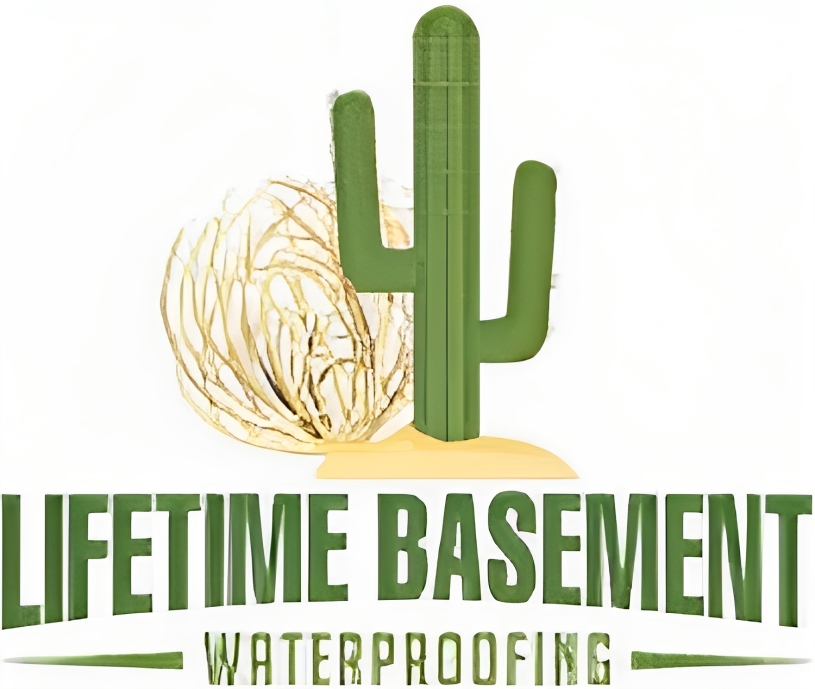
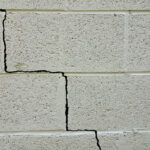

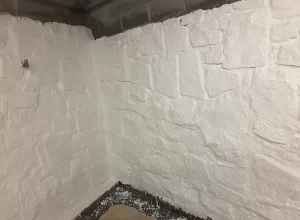
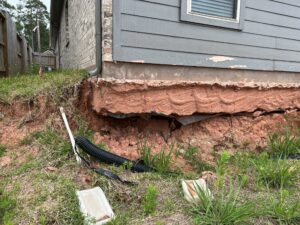

No comment yet, add your voice below!